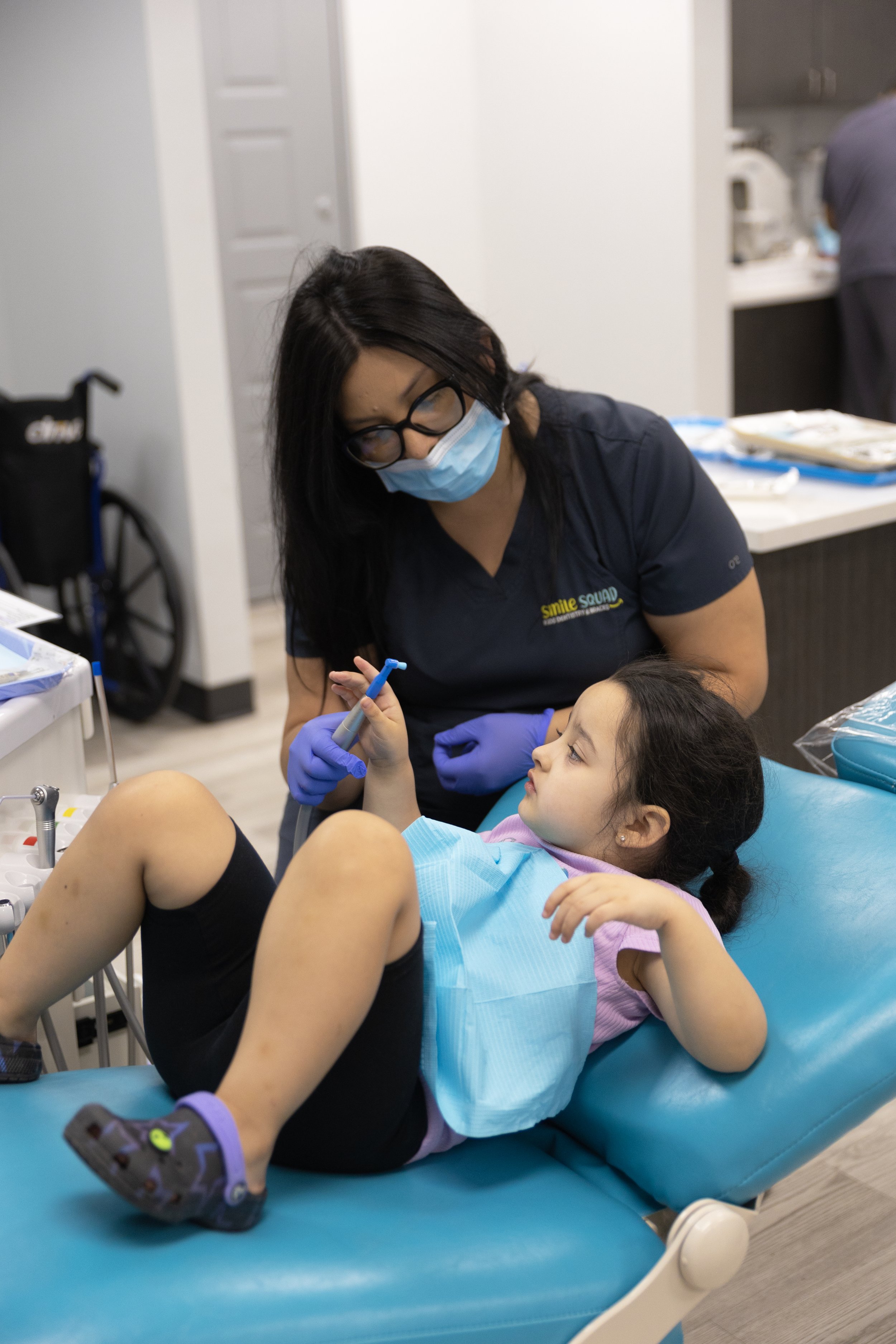
First Visit
The standard recommendation from pediatric dentistry specialists is that all children should have their first dental visit early—very early. When the first tooth appears at about 6 months of age is good. The first dental appointment should happen at least by the time the child turns one.
You don’t want to wait until your child has a full set of teeth before you take them to the dentist for the first time. If there’s a problem, you will have missed the window for easier and earlier correction.
This first appointment typically doesn’t take long. At Smile Squad Kids Dentistry and Braces, we will simply check that the teeth, oral cavity, and airways are developing as they should be. If a few teeth are in, we can also spot any early signs of decay and plaque build-up. In some cases, a cleaning or a fluoride treatment may be recommended.
The biggest concern at this age is cavities. Cavities, for one, are painful. They can lead to problems with eating, speaking, and even learning. Healthy baby teeth play an important role as placeholders for adult teeth, and when this role isn’t fulfilled properly because of juvenile tooth decay, a person can have lifelong dental problems.
The first appointment is also for parents. We will discuss proper brushing techniques for a young child and how to avoid feeding habits that can inadvertently promote cavities. We might also talk about feeding, when to switch to fluoride toothpaste, and thumbsucking habits, and dental developmental milestones to watch out for.
Early dental visits are important for lifelong oral health. In addition to catching any problems early, they help get children used to seeing a dentist. A decent percentage of adult Americans, as high as 15% according to some studies, avoid the dentist because of anxiety or fear; it doesn’t take a large logical leap to assume their oral health is worse because of it.
It’s also good to have your child get used to taking care of their own teeth. Sometimes, you may want to allow them to hold the toothbrush and brush even if they don’t do as thorough of a job as you can do. Dental care at this age is also about building good habits, and these good habits will serve them well in the long run.



